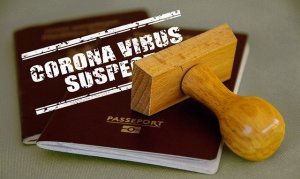The 2014 Report To The Nations (RTTN) by the Association of Certified Fraud Examiners (ACFE) has revealed that “The vast majority of occupational fraudsters are first-time offenders; only 5% had been convicted of a fraud-related offense prior to committing the crimes in our study. Furthermore, 82% of fraudsters had never previously been punished or terminated by an employer for fraud-related conduct.
While background checks can be useful in screening out some bad applicants, they might not do a good job of predicting fraudulent behavior. Most fraudsters work for their employers for years before they begin to steal, so ongoing employee monitoring and an understanding of the risk factors and warning signs of fraud are much more likely to identify fraud than per-employment screening.”
This means the seemingly good people in your team are likely to commit fraud. It is a matter of time.
As the fraud triangle tells us, all of us have got some kind of pressure, motive or incentives – we want to beat the deadline, do some gambling or keep up our appearances. It is a tough balancing act.
Different people have different pressures you just need to study their behaviors and understand their circumstances.
For some politicians, their electorates expect something from them. That successful CEO could be worried about the unfulfilled promises about a CSR project in their home village or something he promised at his place of worship. And that cleaner in your office, could be having a University girl s/he has to provide weekly up-keep-money in addition to his own survival.
Pressures arise from inability to live within ones means.
A small mistake by a good business person or executive of lying on their personal or business loan application could result in defaulting on their monthly repayment. Which leads to another loan in another bank and the next and before you know it, the good person is involved in a grand fraud. Your good staff will suddenly find themselves in a huge financial mess and wants to clear several outstanding loans. They will grab any opportunity to commit a fraud to help fix their financial mess.
To steal is a personal choice. Majority, if not all, of the fraudsters usually have some kind of justification for their actions.
I have been involved in over 50 fraud investigation cases. It is painful to see young, brilliant and high rising employees getting too excited and cutting their careers short. Some of them work with fraudsters and do nothing about reporting the fraud. Others are too busy rushing through paperwork that they append their signatures on fraudulent contracts and schemes without thorough scrutiny. Others commit fraud deliberately to make money the easy way. Unfortunately, it usually catches up. It is difficult to run away from your own conscious.
Just being a subject of a fraud examination is bad.
The usual immediate response to any fraud incident by most companies is to strengthen their internal controls oblivious of the fact that in most, if not all frauds, controls are always overridden. Fraud involves collusion of staff. It does not matter which kind of controls your company has or how secure your system is, fraud will always take place, if your staff are motivated to commit it.
The best way of minimizing fraud is to also focus on the human side of the business.
If you are an investor in Uganda or Africa at large, you need to first understand that most people commit fraud to meet their basic needs. Many of your staff lack personal financial management discipline. They don’t know how to live within their means.
As a fraud examiner and investigator, I have found that teaching people about personal financial management and wise investments is more effective fraud prevention strategy than investing in lots of controls and systems hardening. At the end of the day, your controls must be operated by your staff. If they are motivated to steal, they will always do so.
Enter into their brains. Try to show them how to live within their means. If you earn US $1,000 monthly, how do you live within that income? Should you buy a car now or use public transport? Are you married? Is your partner earning income or you are a sole earner? Should you live in a US $400 monthly rent apartment with that kind of monthly salary or find your own level so that you are not stressed too much? And how much to save for that dream home?
These are the issues I am trying to address with my clients. In my profession, prevention is better than cure.
Personal financial management training is critical component in the enterprise fraud risk management strategy. Due to demand, I published a book, Your Three Keys To A Worry Free Life on Amazon. Or get a copy from Aristock Bookshop in Kampala or call +256414231136 to help give you financial freedom. I use my personal life story to drive my point home.
As a fraud examiner, don’t just spread the ‘internal controls’ or ‘risk management’, etc gospel. Help your clients or employers to focus on empowering their staff to manage their personal finances well. This will help reduce financial pressures on your staff. That is a key fraud prevention strategy.
Copyright Mustapha B Mugisa, CFE. 2014 All rights reserved.



